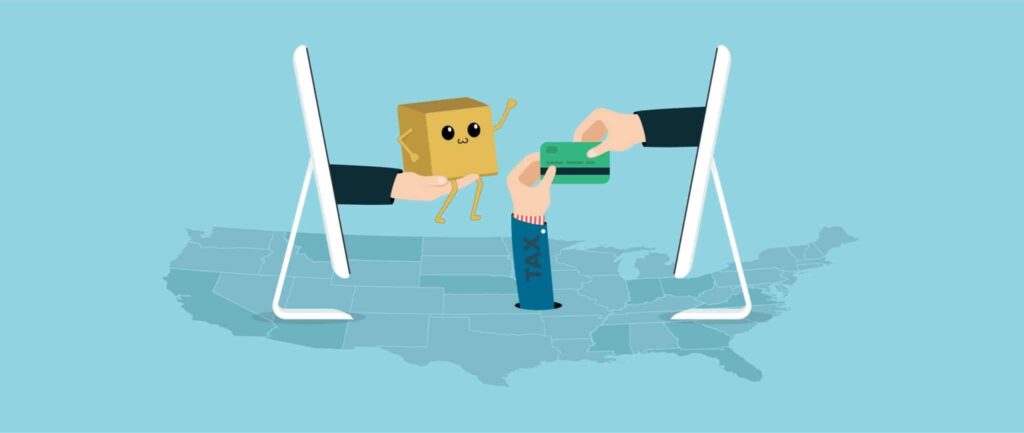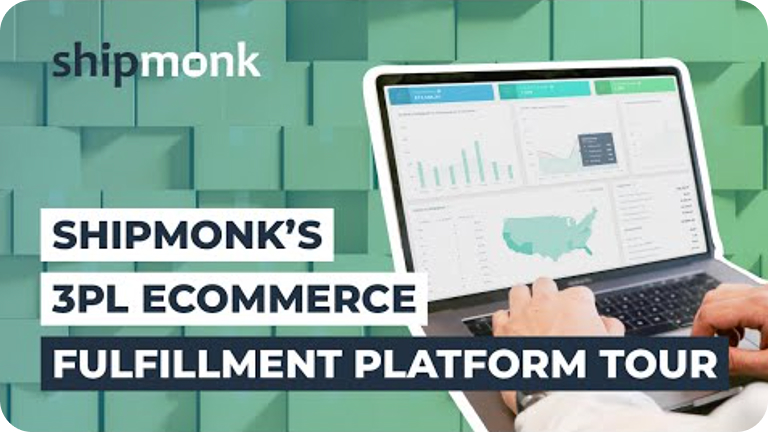Aside from accountants and the IRS, very few people are enthusiastic about taxes. But, as an eCommerce business owner, you’re going to be dealing with taxes pretty frequently — as in, all. the. time. While it’s tempting to leave taxes for later rather than sooner, we’re here to say… don’t!
Facing your numerical fears doesn’t happen overnight, so think of this article as a gentle introduction rather than a comprehensive guide. Once you get the basics down, the rest of it will come much easier. And, if it doesn’t, you can always outsource. 😉
Sit back, relax, and let’s learn some tax!
South Dakota vs. Wayfair
Have you been keeping up with the latest Supreme Court rulings? No? We don’t blame you. But, for the sake of this article (and your business), let’s flex our lawyer brains for a moment with one particular case all eCommerce merchants should be familiar with. We’re taking you back… to 2018’s South Dakota vs. Wayfair.
Actually, to really set the scene, we have to shuffle back a little further. The year was 1992, and the Dakota in question was North Dakota. The company? Quill Corp. The problem? Floppy disks. Specifically, if sales tax should be collected on internet purchases made for those floppy disks (and items like it).
Quill Corp maintained no physical presence in North Dakota, so they argued that taxes should not be paid. North Dakota argued the opposite, as Quill Corp was profiting from North Dakotan purchases.
When it came down to it, the United States Supreme Court ruled in favor of Quill Corp, which meant states could only collect sales tax on remote purchases where the seller in question had physical presence in the state.
History has a way of repeating itself, and that’s precisely what happened with South Dakota vs. Wayfair. This time, the old holding was deemed obsolete, on account of the massive changes that retail has faced in the last two decades.
With eCommerce becoming ubiquitous and practically synonymous with modern shopping, it was decided that states had the right to charge sales tax on out-of-state purchases, whether the seller had physical presence or not.
The Nexus of It All
One of the first things you’ll hear as an online seller is that, if you have nexus in a state, you must collect taxes.
Aside from physical presence, such as a store or office, the full definition of nexus includes:
- Having inventory in the state, even if it’s temporarily passing through
- Having employees or contractors working for your business within a state
- The use of third-party shippers, warehouses, and fulfillment partners (that’s us!)
For nexus to be triggered, there is usually a sales and/or transaction threshold that needs to be met, provided the state in question has adopted the Wayfair decision. For most states, that is $100,000 in sales and/or more than 200 separate transactions in the previous or current calendar year. Each state is different, so be sure to check!
Since there’s no such thing as federal tax, it’s up to each state to collect and remit taxes as they see fit. Of all 50 states, only 5 have opted out of sales tax — Alaska, Delaware, Montana, New Hampshire, and Oregon.
Stragglers aside, the other 45 states (plus Washington D.C.) each have their own rates, and 38 out of 50 states collect local as well as state taxes. All in all, it can get pretty confusing, but there’s more to come, so hang tight!
The Rules
Sales tax comes into play even before you start selling, as most states require online sellers to apply for a sales tax permit.
To apply, you’ll need:
- Your personal and business contact information
- Your business type (Sole proprietorship, corporation, LLC, etc.)
- Your NAICS code, which is 454110 for online stores
- A Social Security number (SSN) or Employer Identification Number (EIN)
Registering for a sales tax permit can be done through your state’s Department of Revenue, which is also where you’ll file tax returns.
When it comes to filing returns, transactions should be broken down by state, county, city, and district, so that each respective government can properly allocate the funds.
The Exemptions
For every rule, there’s an… exemption? In the tax world, there are special sets of circumstances that allow for taxes to be waived, or at least reduced to a lower rate.
Tax exemptions are most commonly made for the following reasons:
- Identity. Such as federal and state governments, non-profits, educational institutions, and religious organizations.
- Type. Such as clothing, food, prescriptions, medical devices, and industrial equipment.
- Use. Such as products bought with intent to resell, products that support certain industries (like agriculture and manufacturing), and products that encourage or promote public wellbeing (like food production).
In addition to the above, some states offer tax-free weekends (or even weeks!) to take advantage of the back to school season, which usually happens around the month of August.
It’s worth noting that, most of the time, the seller must collect sales tax unless they believe an exemption can be made. In that case, the consumer is the one responsible for proving their purchase is not subject to sales tax, which is done by presenting a valid, written certificate that documents the exemption.
Of course, we don’t want to leave you hanging after all this tax talk. The truth is that taxes are liable to change on a regular basis, especially as eCommerce grows and evolves.
A great way to stay afloat is by consulting the Sales Tax Institute, which serves as a necessary resource for many business owners. Among other things, you’ll be able to find a list of state and local tax rates, as well as more information about applicable sales taxes.
Taxes are no walk in the park, but we hope this brief overview has helped you find your footing. If you’ve still got some questions, we recommend procuring your friendly neighborhood accountant.
Disclaimer: The information contained on this site does not constitute tax advice or an accountant-client relationship. This information is intended as general guidance on matters of interest only. Due to the complexity of tax law and the changing nature of laws, rules, and regulations, the information contained on this site may not always be accurate. Accordingly, the information on this site is provided with the understanding that the authors and publishers are not herein engaged in rendering legal, accounting, tax, or other professional advice and services. As such, it should not be used as a substitute for consultation with professional accounting, tax, legal or other competent advisors. You should consult with your tax professional regarding your specific circumstances.





